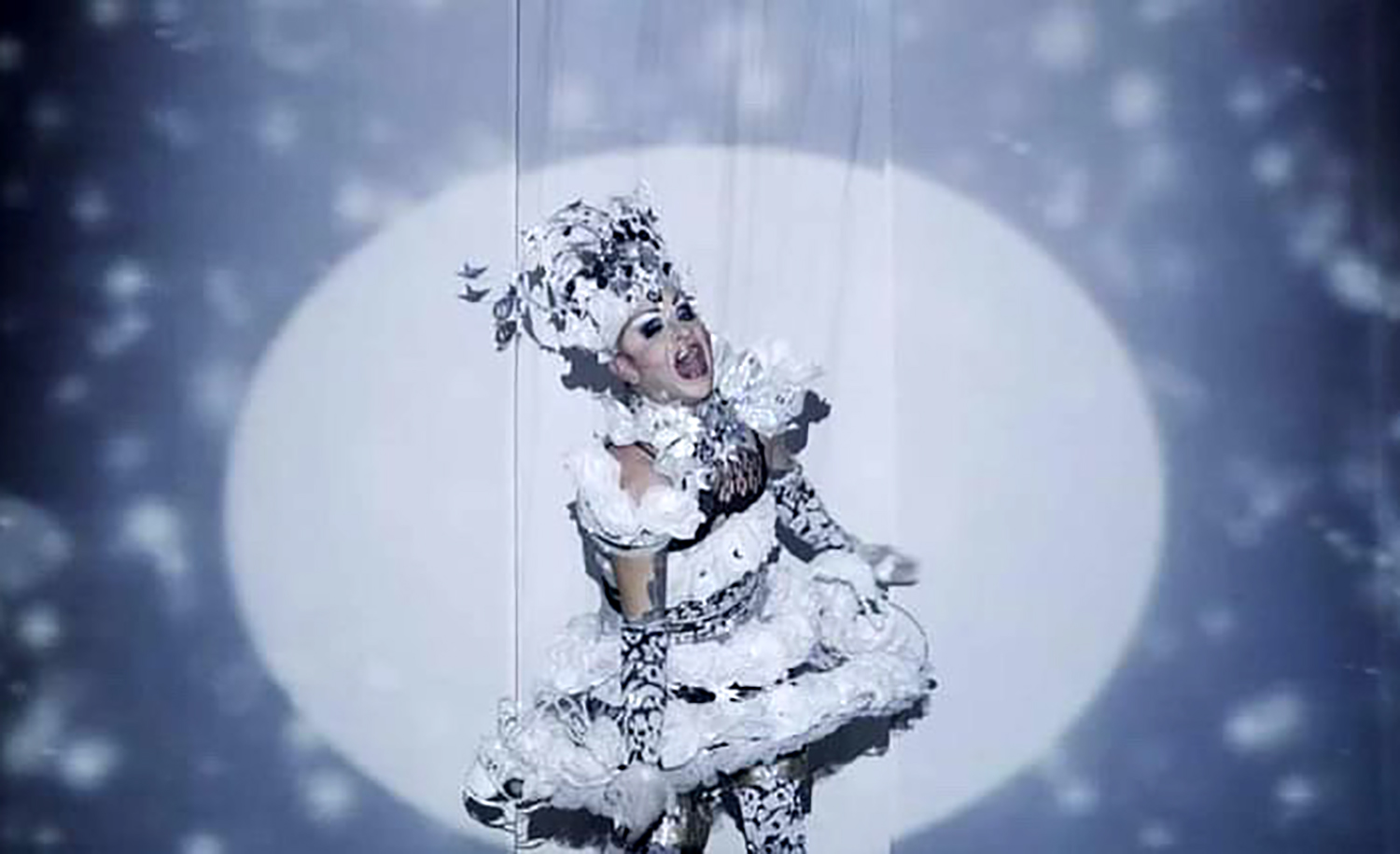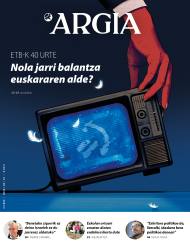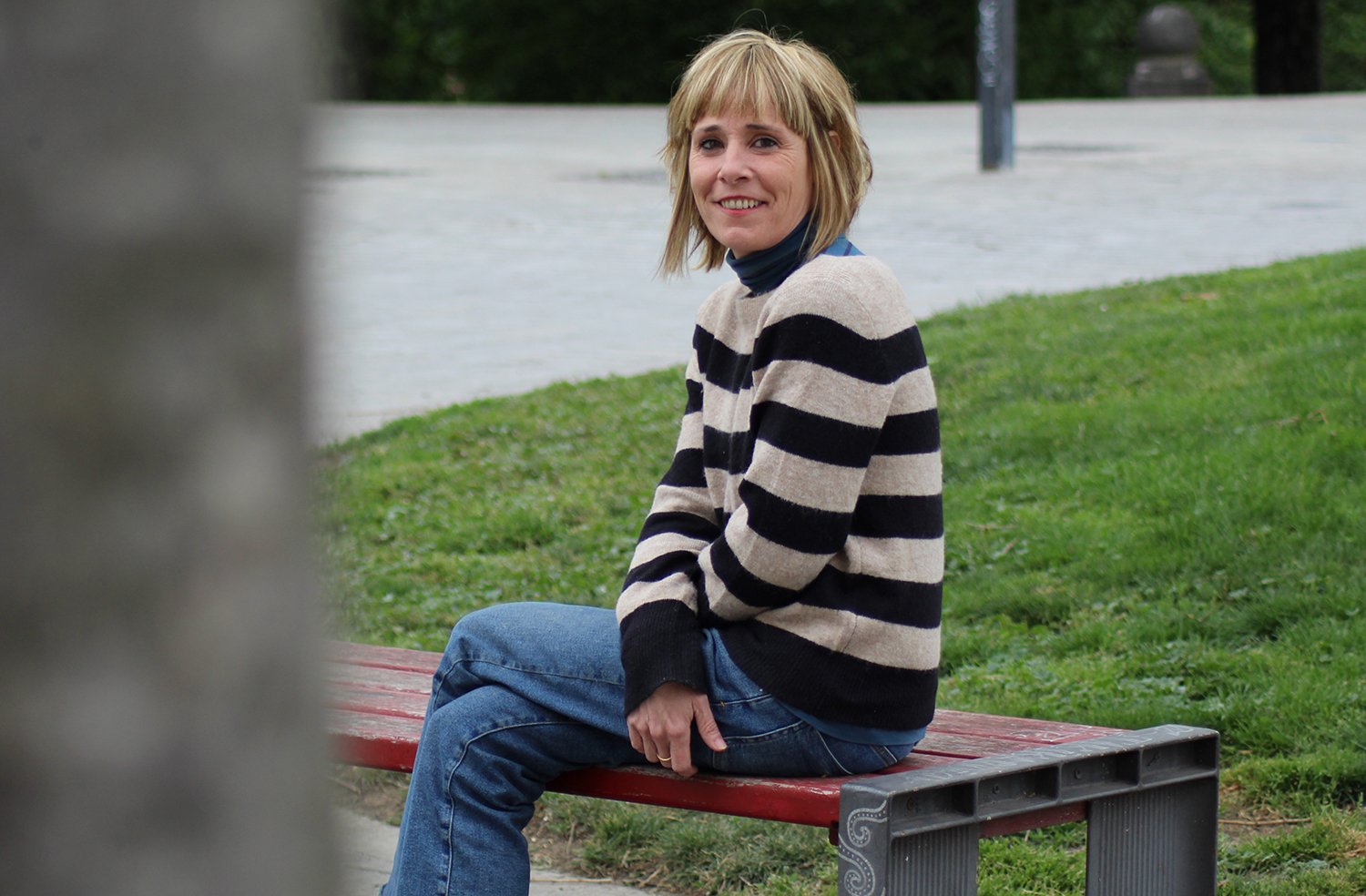"Literature has helped me understand sadness."
- Daniela Cano has lived surrounded by unanswered questions and feeling “profound sadness”. Colombian artist who, in the midst of the pandemic, had to flee to Madrid because he was threatened in Colombia. Art especially uses literature to get answers and try to understand sadness: “Sadness cannot be medicalized, sadness is very complex and we have to try to understand why and where it comes from.”

Daniela Cano is an artist and activist of a poor family of the Colombian people of Alcalá. Despite his scarce financial resources to approach art, literature has been his refuge and strength: “Because we didn’t have money we played in a landfill and we had a great time. There I found my first book and then I knew that literature would be my way.” She is a transe woman, and although in her childhood she was “very happy”, she had no resources or information to understand her identity: “As she had many doubts, the family she was looking for in the books had no answers.” All this led to a “deep sadness”: “Today they call him depression, but for me it will always be a deep sadness.”
Through the literatures he met the writers of the 1927 generation, and wanted to be part of that generation: “It was clear that before he turned 27 he was going to die and it had to be early when a work was finished. Then I didn’t know I still had much to tell.” At 13 years old he attempted suicide: “He had a great love of death and could not escape the sadness and stories of poets.”
Cano saw a person commit suicide: “I couldn’t take my head off suicide. I wrote a novel in which a character committed suicide as I wanted to commit suicide. When the character died I managed to release it.”
His first contact with psychiatry after the suicide attempt was “The truth is that psychologists and psychiatrists did not help me much, literature did.” In general, he believes that there is a tendency to over-administer psychiatric drugs: “Sadness cannot be medicalized, sadness is very complex and we must try to understand why and where it comes from. However, it is very difficult.” As drugs interrupt her creativity, instead of taking medicine she prefers to create: “Literature has helped me understand sadness.”
Artivism as a tool for social transformation
It works not only literature, but other artistic disciplines like playwriting. He founded the company La cortina roja in Colombia: “There was no other LGTBIQ+.” Through her, she carried out a face-to-face activism in Colombia: “Art and culture are used to control society, and only those who have money and power acquire art and knowledge”.
He explains that art was “very belligerent” and provoked by anger and misfortune. While distributing poems across the street, he saw his art as “conflictive” and “dangerous.” In one of those poems I killed the police with Olerkiak: “For a week I got into myself, I was raped and I got everything done.” He says that the attitude of the police is a tool of social control: “Through education people’s thought spreads, and that causes changes, but they don’t want it.”
"Art and culture are used to control society, and only those who have money and power acquire art and knowledge"
Threatened
The company The Red Curtain was in operation for fifteen years and created seven works: “There was a lot of resistance, especially from academics, but the product was good and stable, and the public believed in me.” Over the years, it became increasingly difficult to work with the company, because for many of its work was “uncomfortable”: “In some places I could not present it because they threatened theaters, once I had to leave hidden among bananas in a truck.”
One night, the paramilitaries entered the house and threatened him and his partner: “They told us that if we were against the Earth and didn’t disappear in twenty-four hours they would cut our heads and kill us.” They took the suitcase and the dogs and fled the next morning: “That night we lost everything.” They denounced and called the media to tell him, "They asked for 10 million pesos in my head and killed someone every day."
Four days later, they went to the alternative festival in Bogotá to make a show and get money. With the money they got, they got a room for a month. The head of the Indispensable House, today Casa E Borrero, told him that he had to flee Colombia and offered him the possibility of performing shows at his place: “I spent three months and fled”.
Before the threats began he sent a novel to a competition in Madrid and, as they chose, fled to Madrid: “The beginning was very hard, I had nothing and I tried to commit suicide again.” He went back into the psychiatric system: “At first I was not allowed to write, and that was the only thing that helped relieve my pain and sadness.” Although coming to Madrid was “hard”, he feels that he was born again in Madrid: “I want to write not only from pain, but also from inspiration.”

PART OF THE BODY
“The most beautiful part of the body is the eyes, because with them you can see my soul as it is.”
A POEM BY DANIELA CANO:
(Translated to Basque)
-
Bat cage if my place in the world
Spiral egingo dut infinitaren egiteko
Hormaren arteko pausuak bakarrik badago
Bestekoak izan naiz
Ammoniaran nahi naiz
If you will be affected to other affaire
If you're going to cut my legs to make the amulets
Nire burua prezioa jarri egingo dizut
Nire kateko links izango naiz
Orain art my teeth
Denoi jakin behar
Bide-erdietan nude egin zezen
Eztebe / Santutxu, iruketan
Izan ere, nude bat ez behar du suertes
Sua Fur Is Fortune
Basko beltza naiz
Begi oinaz
Ears gabe geratu naiz cazatzailea
He whispered very close to his five words
Alicia nahi dizut batzuk
Ez dut I'll go back gaitezen lomo utzi
Those merchants trafficking with them
I'm gonna fill my burrow with nuggets
-
Ermityear bebertzean
Nire galdera bera egingo dut konpondu
Mirror bat berriro esaten dizut
ikusi nahi didala costume
Asmien dantza bailatzen
Solitude in rabbits
If my place in the world is a cage
I'm going to spiral around to make it endless.
Even the wall that separates me from others
If there are only ten steps
What do I want to build up carrots for?
If you take my skin off to lucky another
If you cut my legs to become an amulet
I get price
Until my yellow teeth break
If I have to dentalize every link in my chain
So everybody knows I was singing.
Halfway I was naked
Without fear of the stars they were looking at
A naked rabbit doesn't need luck
Her coat is happy
I'm going to the dark of the deep forest.
By eating scorpions with red eyes
I ran out of hearing
When a hunter whispered to me his five words very close
If Alicia appears, I'll ask for some
I don't let them touch their back again
Those traders who trade with kisses
I'll fill my seed strength
For the smell to flush out the long pots
I drink roots like an emperor
Solving my questions
Until a mirror repeats
Who wants to see me in a new suit
Dancing the dance of inventions











